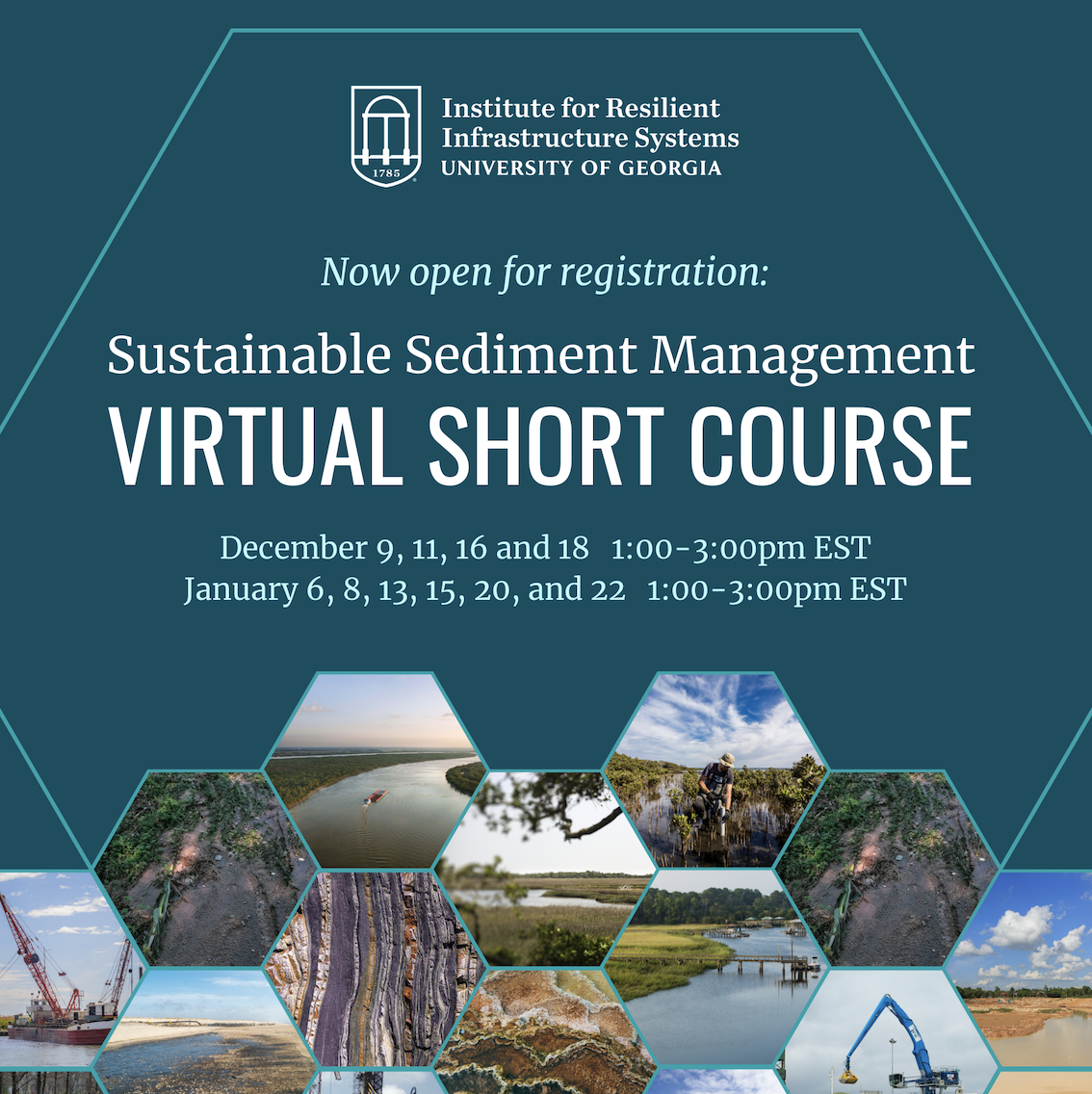Countries and organizations around the world share the increasingly important challenge of sustainably managing sediment.
Sediment systems support habitat for species and the structure and function of nature-based features that can address risks including shoreline erosion, flooding, and drought. Sediment also presents challenges to the operation of infrastructure systems such as reservoirs, ports, and navigation channels. About 250 million cubic yards of sediment is dredged annually in the U.S. at a cost of more than $1 billion. The 2024 Water Resources Development Act established as national policy that not less than 70% of suitable dredged sediment should be beneficially used.
Join us for a series of two-hour long virtual sessions, where you’ll have the opportunity to explore the principles and practices of sustainable sediment management in coastal and riverine contexts through in-depth presentations on concepts; engineering and operational practices; methods, modeling, and technologies; and detailed case study examinations of design, construction methods and projects, all taught by the leading experts from academia, industry, contractors, government, and non-profits.
Examples of included topics are:
– Sediment and dredging processes
– Beneficial use
– Nature-based solutions
– Strategic sediment placement
– And more! Multiple small-group breakout sessions will be used to foster dialogue, problem-solving, and application.
The shortcourse will be held on the following dates:
December 9, 11, 16, 18 from 1:00 – 3:00 p.m. EST
January 6, 8, 13, 15, 20, 22 from 1:00 – 3:00 p.m. EST
Each session will be recorded and made available to participants for three months following the shortcourse to allow for flexibility in attendance.
Registration deadline is October 21. After the deadline, an additional fee of $250 will apply.


